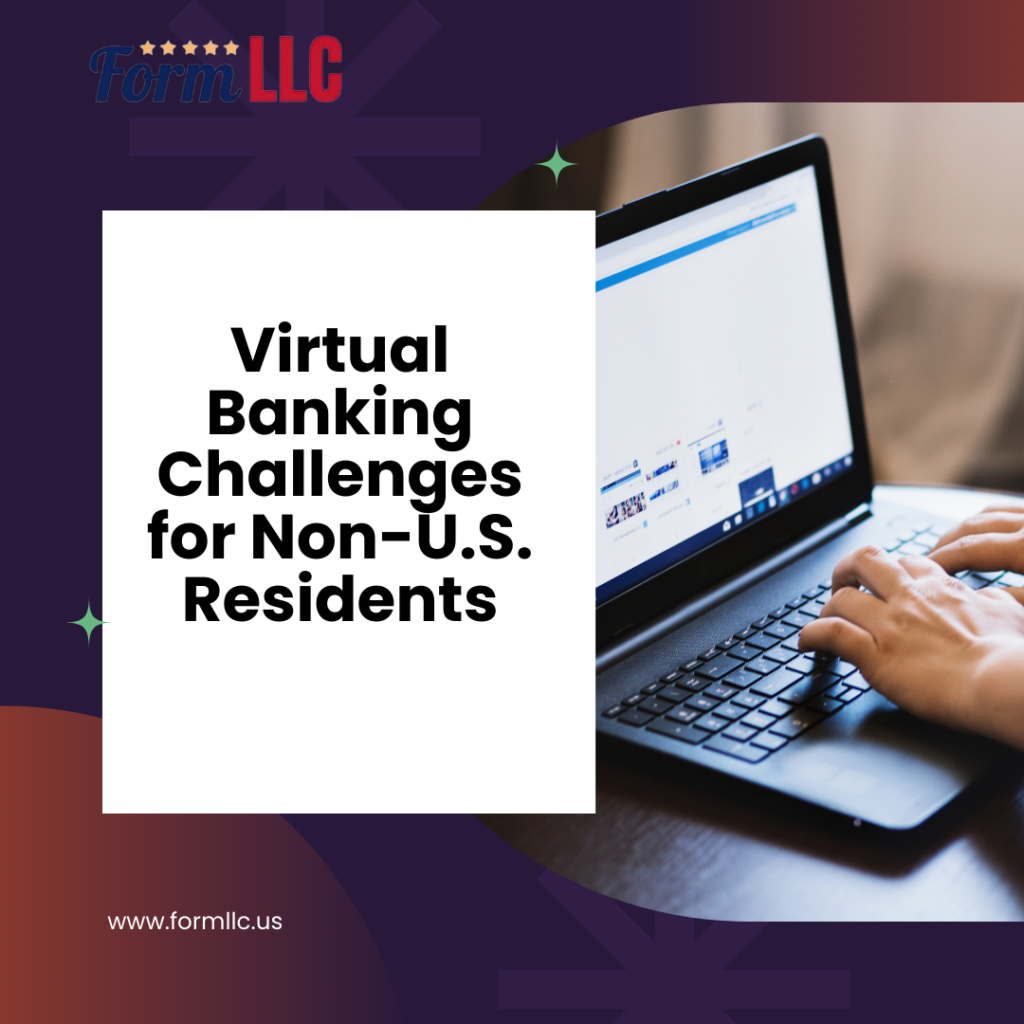Virtual banking gives comfort and decrease expenses for businesses, however non-U.S. citizens face precise demanding situations whilst starting money owed for LLCs or non-public ventures. Recent regulatory adjustments and moving guidelines have made it tougher for worldwide marketers to get entry to U.S. banking offerings.

1. Stricter KYC Regulations
As digital banks face growing stress to conform with international anti-cash laundering (AML) and Know Your Customer (KYC) regulations, non-citizens have to offer great documentation, inclusive of passport copies and evidence to dealing with. These extra verification steps can postpone the account starting process, specially for the ones surprised with U.S. banking requirements.
2. Limited Access for Foreign Clients
Many digital banks limit offerings for non-U.S. citizens, requiring a U.S.-primarily based total deal with or taxpayer identity number (TIN). Some digital banks best take delivery of clients from unique countries, proscribing alternatives for overseas marketers. As a result, getting entry to banking offerings may be tougher, especially for the ones working remotely.
3. Limited Service Offerings
Even whilst digital banks do take delivery of non-citizens, the offerings to be had can be restricted. Non-U.S. citizens regularly face regulations on credit score products, loans, and a few charge methods that can prevent enterprise operations, specially for the ones seeking to scale or looking for financing alternatives.
4. High Currency Conversion Fees
Non-citizens regularly stumble upon excessive expenses and damaging alternate quotes whilst changing currencies or moving finances throughout borders. Virtual banks which might be tailor-made for U.S. citizens may also lack green forex conversion alternatives, making worldwide transactions greater expensive and much less green.
5. Security Concerns
Digital banking systems are more and more more focused via way of means of cyberattacks, and non-citizens can be greater susceptible to fraud or unauthorized get entry to because of their geographical distance from U.S. banking institutions. Virtual banks have to spend money on cybersecurity, however enterprise proprietors additionally want to take extra steps to steady their economic data.
Conclusion
While digital banking can provide substantial advantages, non-U.S. citizens face numerous hurdles, inclusive of stricter KYC requirements, restricted offerings, excessive expenses, and safety risks. Entrepreneurs have to cautiously navigate those demanding situations, discover their alternatives, and are searching for economic steerage to make sure clean enterprise operations.